The Canoe Is the People
Indigenous Navigation in the Pacific
The stars can never go wrong
Thousands of years ago, when most sailors were still hugging the coast, the island peoples of the Pacific held the knowledge and skills to explore the great ocean paths extending far beyond their homes. Modern instruments didn't exist - no compasses, no radio, no radar GLOSSARY radar - a system that uses electromagnetic waves to locate surrounding objects , no GPS GLOSSARY Global Positioning System (GPS) - a handheld computer that tells your position by communicating with satellites . The Pacific peoples found their way across the ocean, guided by the wind, waves, stars, and sea life.
Ancient voyagers did not use metal or fiberglass to make their boats, nor plastics to make rope or dacron for their sailcloth. They did not use outboard motors or diesel engines. They made sturdy boats from natural materials: rope from plant fibers to lash the canoe together, the leaves of plants to make their sails. They used the wind to move across the ocean. Their knowledge was built up through generations of experience. It was handed down through teaching, stories, and songs.
An experienced Tongan wayfinder once said, “The compass can go wrong, the stars never.” From David Lewis in Bader, H. and McCurdy, P., eds (1999). And that is the beauty of Pacific wayfinding. Voyage into this website to find out more…
I want you to see what I am doing
Taumako Master Voyager Koloso Kaviea and Taumako videographer, Dixon Wia
Koloso Kaviea says “I want you to see what I am doing so I can teach you the customs that you can use to voyage. Hey, why don’t you sit up on the platform?”
Dixon Wia answers “Me?”
Koloso Kaveia “Yeah, I am working here!”
Dixon Wia asks the crew “Can you see the island?”
Fox points to it “Yeah, I can see it.”
Dixon Wia “It is far, yes?”
Fox “Yes, it is far.”





